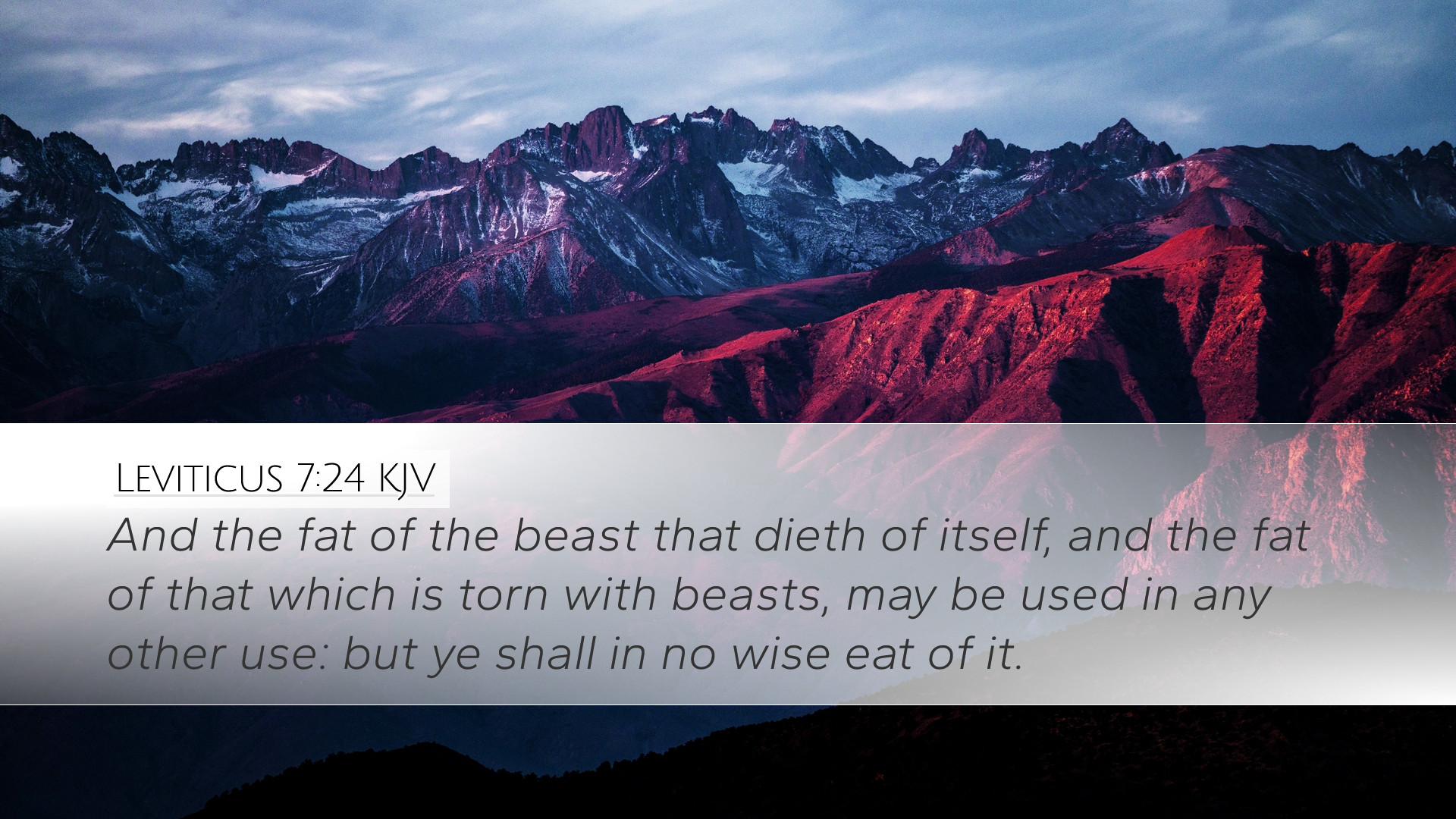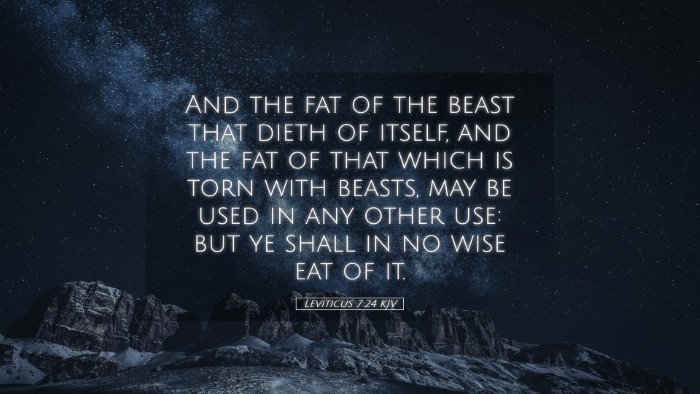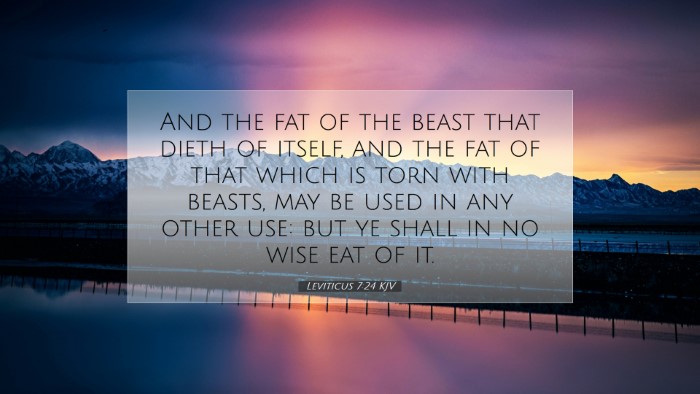Commentary on Leviticus 7:24
Leviticus 7:24 states: "And the fat of an animal that dies naturally or is torn by beasts may be put to other uses, but you must certainly not eat it." This verse, while seemingly straightforward, provides profound insights into the standards of holiness and purity mandated by God for His people. This commentary consolidates perspectives from renowned public domain scholars such as Matthew Henry, Albert Barnes, and Adam Clarke to delve deeper into the theological implications of this verse.
Contextual Analysis
1. Holiness in Offerings: The sacrificial system outlined in Leviticus is anchored in the broader theme of holiness. Matthew Henry explains that the fat, being a significant portion of the sacrifice, symbolizes the best of what one has. In essence, it is a reflection of devotion; thus, the fat of an animal that does not meet the divine standards cannot be offered.
2. The Importance of Cleanliness: Albert Barnes emphasizes the significance of dietary laws as a means of setting apart God's people. The fats from animals that died naturally or were torn by beasts signify contamination and impurity, rendering them unfit for consumption. This reiterates the concept that adherence to God's commands is essential for spiritual cleanliness.
Theological Implications
1. Symbolism of Fat: In biblical tradition, the fat of the offering often represents the richness of God's provision and is regarded as the most valuable part. Adam Clarke notes that the fat was meant to be offered to God, showcasing loyalty and reverence. The prohibition here reinforces that offerings must be pure and unblemished.
2. Distinction between Sacred and Profane: This regulation draws a clear distinction between things that belong to God and those that do not. The instruction not to eat the fat of certain animals establishes boundaries for the faithful's interaction with the sacred. It challenges believers to discern what is holy and to engage with their offerings in a manner reflective of their standing before God.
Practical Application
1. Mindfulness in Worship: The verse is a call for mindfulness in worship and the elements we bring before God. Pastors and leaders can draw from this to encourage congregants to evaluate what they offer in various forms—be it their time, talents, or resources—all should be given with intentionality and purity. Henry points out the need to offer "the first fruits" as a response to God's blessings, appealing for a spirit of generosity that reflects an understanding of sacredness.
2. Ethical Considerations: This verse also leads to ethical considerations regarding how we utilize resources. Barnes highlights that while there may be potential uses for that which is unclean, faithful adherents are called to a higher standard, enabling them to demonstrate their commitment to God over cultural or personal interests. The church can cultivate this by teaching on stewardship and the responsible use of God-given resources.
Conclusion
Leviticus 7:24 offers rich theological insights that resonate with the core tenets of faithfulness, purity, and the sacred. By understanding the significance behind the regulations of offerings, students, theologians, and pastors are reminded of the importance of approaching God with reverence and a deep awareness of holiness. As we engage with this text, we are encouraged to reflect upon the devotion we bring before God and the ethical dimensions of our interactions with His creation.


